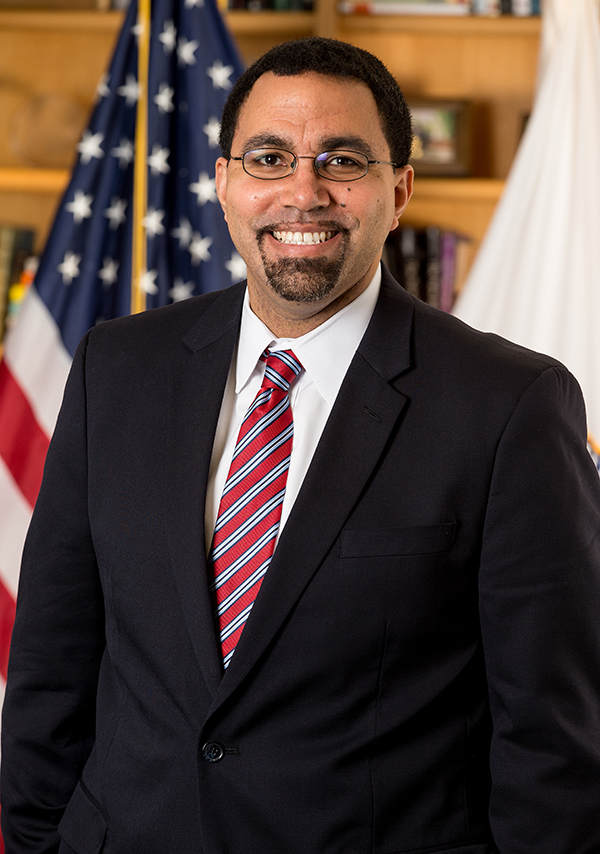The United States must make “a national commitment to make up for our children’s unfinished learning,” asserts TC alumnus John B. King, Jr., President and CEO of The Education Trust and former U.S. Secretary of Education.
Speaking as part of “Will This Be a Lost Year for America’s Children?,” a New York Times Magazine roundtable in print, King (Ed.D. ’08, M.A. ’97), called for “a nationwide focus on tutoring” and “additional counselors and mental-health services,” adding that “because of the failure of the federal administration to respond appropriately to the pandemic, and the failure of Congress to act, we are heading into a fall that is going to cause kids to lose even more ground academically.”

John B. King, Jr. Ed.D. ’08, M.A. ’97 (Image: Department of Education/Public Domain)
In a panel moderated by magazine staff writer Emily Brazelon, King was joined by Susana Cordova, Superintendent of Denver Public Schools; magazine staff writer (and 2020 TC Convocation speaker) Nikole Hannah-Jones, awarded the Pulitzer Prize for Commentary this year for her leadership of the Times’ 1619 Project; sociologist Pedro Noguera, Dean of the Rossier School of Education at the University of Southern California; and Shana V. White, a computer science teacher at a public middle school in Atlanta.
[Read a story on King’s conversation with Provost Stephanie Rowley at TC’s virtual New Student Orientation earlier this month.]
Citing projections that Latinx and African-American students will miss up to 10 months of schooling if fully remote learning continues through January 2021, King, who earned his doctorate in Inquiry in Educational/Administration Practice within the Department of Organization & Leadership and his master’s degree in the Teaching of Social Studies within the Department of Arts & Humanities, sketched out the consequences for a first grader still learning to read: “So that child missed three or four months of school last spring, and now is…in a district that’s going to offer fully remote instruction or a hybrid of remote and in-person. The child is still likely not going to get the regular support around learning to read that he or she needs. I’m really worried about where that child is going to be two years out, three years out, 10 years out.”
Because of the failure of the federal administration to respond appropriately to the pandemic, and the failure of Congress to act, we are heading into a fall that is going to cause kids to lose even more ground academically.
—John King
Equally alarming, King said, is the potential long-term social and emotional impact on children who have been isolated from their teachers and peers, or who are in homes where there’s been trauma from COVID-19 or trauma from the economic crisis. There are kids affected by violence or addiction or abuse who’ve been without the supportive relationships they have at school.”
There have been bright spots in how individual districts and schools have responded to the pandemic, King said, but they have not been leveraged. “The federal Department of Education should be lifting up those best practices,” he said. “In the absence of federal leadership, states should be doing that.
Ultimately, King, a former history teacher, framed the challenges posed by the pandemic as “a choice between the Hoover path and the F.D.R. path.
The Hoover path is the continued dismantling of public-sector responsibilities. It’s cutting resources for schools, doing less, hoping for less. In contrast, the F.D.R. approach would recognize how deeply interconnected we all are and make our investments accordingly.
—John King
“The Hoover path is the continued dismantling of public-sector responsibilities. It’s cutting resources for schools, doing less, hoping for less. In contrast, the F.D.R. approach would recognize how deeply interconnected we all are and make our investments accordingly” — including “a major additional investment in K-12 education not only to address the consequences of COVID-19 but to remedy the many inequities, especially for students of color and students from low-income backgrounds, that existed before the pandemic.
“We have the resources,” King concluded. “The question is, Do we have the will?”